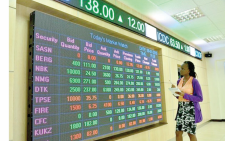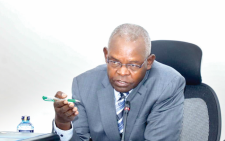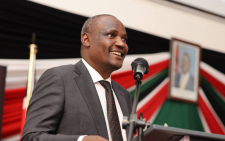Global population hits 8 billion as growth poses new challenges

On Tuesday November 15 was a momentous time in the history of the World. Today the World population has hit the mark of 8 billion people, having grown by 1 billion since 2010 and is projected to surpass 9 Billion by 2037.
This historical moment calls for celebrations because this unprecedented growth is due to increase in human life expectancy, people living healthier and longer due to improvements and advancements in public health, vaccines nutrition, standard of living and poverty reduction.
In Kenya, with an estimated 50 million people which translates to 0.6% of the world 8 billion population has grown steadily from about 8 million populations in 1963 with improvement on the average life expectancy from 48 years to 67 years. As at 1963, one in every seven children died before their fifth birthday and but today we have tremendously reduced child and maternal mortality and many babies live to see their fifth birthday and many more years. This progress realised over the past 59 years, makes Kenya a nation on a path to prosperity where no child should die before celebrating their fifth birthday and no woman dies while giving birth.
Valuable resource
The population of a country is Consider as the most important and valuable resource that contributes to any nation Development if they are placed at the centre of Development planning and harness very well.
At the same time, rapid population growth poses challenges to progress in social and economic development by necessitating an ever-increasing investment of resources to meet the needs of growing numbers of people. In addition, continued population growth gives heightened urgency to efforts to ensure economic development while also protecting and preserving the environment.
In Kenya, the principal challenges lies in ensuring optimal utilization of the youth’s potential contribution towards achieving our nation aspirations and goals. 75% of Kenya population are below the age of 35 years. The demographic dividends due to increase in the youth population relative to adults’ population is an opportunity that arises from demographic transition that happens once in a country population changes and dynamics.
We are at this moment of our history as the Covid-19 Pandemic has completely disrupted the world order. As a Nation, we are celebrating these numbers as we battle the question of the youth bulge and the aspect of the Triple threat; teenage pregnancy, new HIV/AIDS infections and Gender-Based Violence. Our resolve to address these challenges is clearly driving the country towards reaping our demographic dividend. A clear path on strategic investment in Kenya sectors like education, universal health, infrastructure, food security, climate change mitigation, science and technology spell a brighter future for Kenya.
Further, an average woman in Kenya would have a total of 8 children but in 2022, she is having 3 children.. This progress comes as we mark the 3rd anniversary of the Nairobi summit on ICPD25 held in 2019 where Kenya made 17 commitments towards advancing the 1994 Cairo Program of action.
We need to focus more than ever before as we celebrate the 8 billion mark; The philosophy of the numbers, if the world must make progress, ought to be seen and viewed as great opportunities to make the World a better place, more habitable, more equal and a place where we have enough resources for everyone as well as take care of our ecosystem while beating the odds of climate change. Precisely if we focus on making use of our numbers to build back a better world, there are infinite opportunities for all of us.
We may advance arguments that as nations anticipate the changing populations dynamics, there is need for them to a build demographic resilience within applicable laws and moral standards that allows a more sustainable and prosperous world for all; this should not just be for the current generations but also for the future to enable them reap their demographic dividends. In this regard, we shall be on track on realising the SDGs and the 2030 Agenda.
Going by the current discussions and the realities of climate change, at this moment of a world of 8 billion people, we must clearly understand each nation’s demographic trends and plan sustainably; this will mean advancing critical thoughts on the social, political, environmental, and economic factors. Key outputs out of these discussions will provide policy responses that are holistic and responsive to the challenges of our times.
Social programmes
We must call the World to be proactive, we must call our nations to be proactive on matters youth, education, social programmes, health and decency; this will be critical especially to the reality of the climate change.
To build an inclusive society, we must look into the wellbeing of every citizen. Sustainable solutions to gender issues where, as we strongly build a strong girl child, we must also, with same energy, prepare the boy child whom this girl will live with in
the same society. The young people, the women, the elderly, the differently abled all form a bulk of human capital whose contributions to making the world better cannot be ignored. We therefore must strategically invest in this human capital for the good of our society.
As we look towards building sustainable development, investment in proper policy informed by science and data is key to evidence-based decsion making. Sustainable developments will help stem out the climate crisis whose shocks have hard hit the world populations.
All of us must remain alive to the fact that we owe this planet a positive contribution each day to a brighter future and a sustainable world. We owe every human being a chance to a longer and healthier life thus understanding and planning for future demographic changes is essential to achieving continued progress towards the Sustainable Development Goals (SDGs) while ensuring that no one is left behind
Dr Mohamed A. Sheikh is the Director General of the National Council for Population and Development











